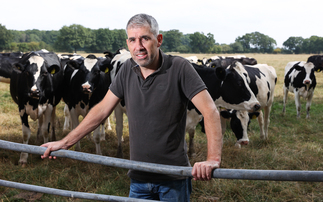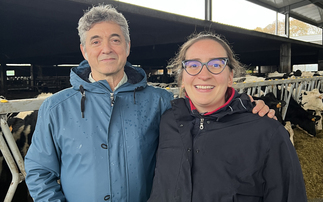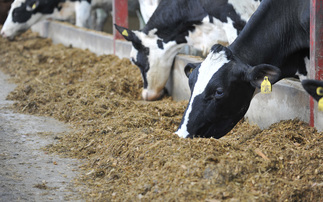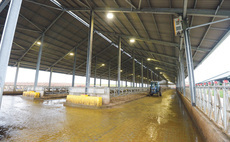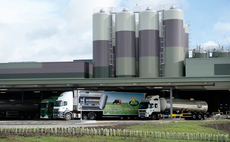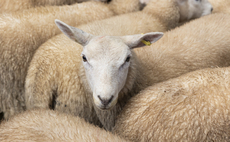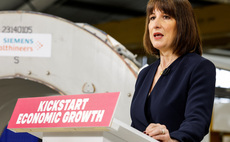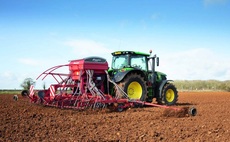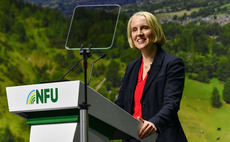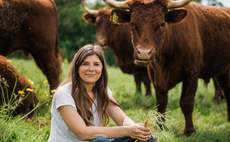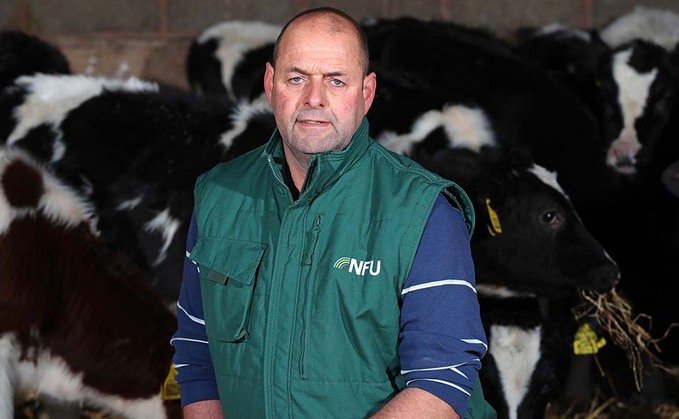
With milk and other dairy products being such a staple in the vast majority of British households, it seems inconceivable that almost a third of producers are considering their future within the sector.
However, that is the stark reality as we face volatile markets, significant inflationary pressures and below cost of production prices - all of these are putting the long-term resilience of many dairy farming businesses under threat and bracing them for an uncertain future.
The NFU's annual Dairy Production Intentions survey assesses the impact of high input prices and the cost of living crisis on UK milk production. The information gathered supports our calls for fair and functioning supply chains to deliver long-term resilience in the sector.
Leaving the industry
This year's survey revealed approximately 9% of dairy farmers intend to stop producing milk by 2025, and a further 23% are unsure if their businesses will continue production beyond the next two years.
Out of nearly 600 respondents across England and Wales, the results found that dairy farmers who are producing less than one million litres of milk per annum felt less certain about the future of their businesses compared to larger producers. However, uncertainty is creeping in across the sample, with 5% of those who produce three million or more litres also intending to cease production by 2025.
The number of producers likely to stop production over the next two years has increased; up 2% compared to the NFU's 2022 survey.
AHDB figures published earlier this year found that nearly 5% of dairy producers in Great Britain left the industry in the period leading up to April 2023 alone, despite the higher milk prices experienced in the later part of last year.
The survey also revealed that the majority of producers are very concerned about the impact increases in input prices such as feed (84%), energy (83%), and fertiliser (74%) have had on their businesses, while over a third (36%) of those ceasing production are doing so due to retirement, with almost a fifth (18%) handing over their farm to the next generation.
Staff
Labour availability was cited by 66% of respondents as a key factor of concern over the next two years.
So, what are the factors impacting on the confidence of dairy farmers? Not surprisingly, insufficient returns, the impact of Government regulation and the scale of on-farm investment required are all reasons cited by producers in our survey as areas of huge concern affecting the long-term viability of their businesses.
Another significant statistic from our survey is the 90% of respondents who identified supply chain fairness as important to support business growth. The NFU has long lobbied for fairness and transparency across the dairy supply chain; this is key to boosting the business confidence of producers.
Milk contracts
Of course, the long-awaited contract regulation, which is expected to come from Government later in the year, will go a long way in supporting fairer, more transparent and accountable dairy supply chains. But let's be clear - it is not a ‘silver bullet'.
Under the proposed legislation, it is anticipated that all milk contracts will be required to clearly set out the factors used to generate their milk price, and any changes to the contract will have to be agreed between the farmer and buyer, rather than one party having the power to change pricing mechanisms and contract terms without agreement.
The legislation is also expected to include a dispute process which farmers can utilise if they believe they are being treated unfairly or their contract is not in line with the new regulations.
Another area of concern that was highlighted as part of our survey was the need to invest in on-farm infrastructure.
Of the producers who responded to the survey, 83% told us they were concerned about the scale of investment required for their enterprise to stay compliant, such as investment in slurry storage. A huge 91% of respondents also said this would be a key issue if they were to expand their business in the future.
Regulations
Meanwhile, 87% of producers said Government regulation was a key concern over the next few years.
Regarding the wider environmental regulation dairy farmers are faced with, the NFU is continuing to lobby to ensure it is fit for purpose and works alongside profitable, productive food production.
It is essential environmental support schemes, such as the SFI (Sustainable Farming Incentive), also provide a financially attractive offer to dairy farmers.
The availability of labour has long been a concern in the dairy sector, and this also came out in the survey. Almost three-quarters (74%) of respondents saw access to labour as a barrier to the growth of their business.
To encourage more people to seek careers in the industry, it is vital that dairy is an attractive, profitable, and exciting sector to work in - long-term, resilient dairy businesses are key to achieving this.
It is abundantly clear that we are facing a crisis of confidence among Britain's dairy farmers. The evidence from our survey shows that, now more than ever, we need to reverse this trend of boom or bust and invest in resilient and collaborative dairy supply chains.
However, I do believe that the UK dairy sector has a bright future, particularly with increasing domestic and global demand for our products.
To ensure we maximise our potential, it is imperative that Government continues to work with us to ensure we have the right environmental, regulatory and trade framework in place to support the production of climate-friendly sustainable food.









